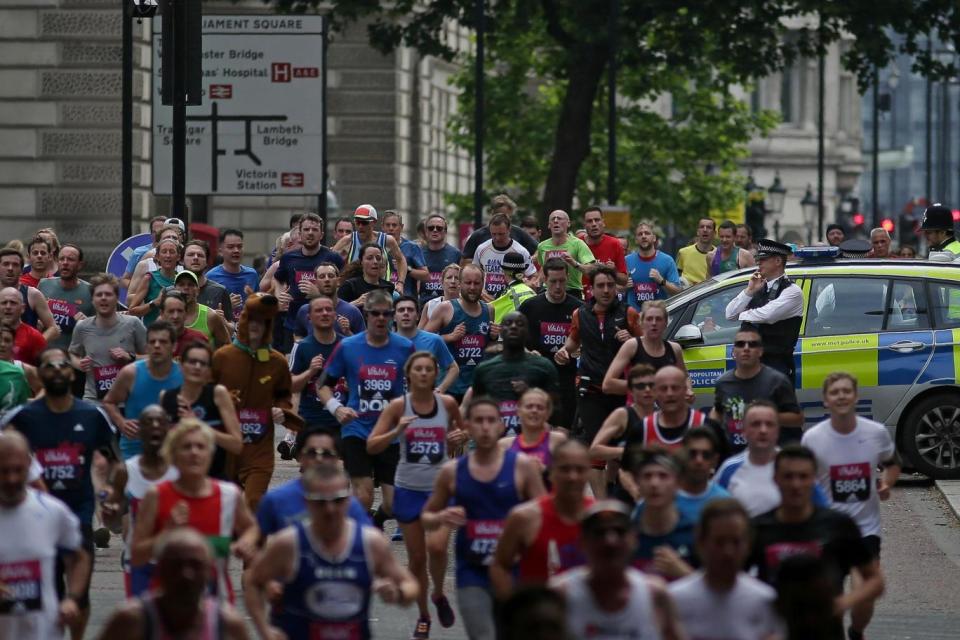Father saved by two doctors running behind him in central London 10K race after cardiac arrest

A father-of-two who suffered a cardiac arrest during a 10k charity run in central London has thanked two “hero” doctors for saving his life.
Fellow runners Claire Barker and Rachael Mitchell stopped to help Paul Alexander, 44, after seeing him in a collapsed state during the Vitality 10,000 event last month.
The doctors, who both work in the intensive care unit at Evelina London children’s hospital, performed CPR chest compressions. Then, with the help of an A&E consultant from King’s College Hospital and a paramedic, who were also on the scene, they used a defibrillator from a rapid-response car to shock his heart back into life.
Mr Alexander was about 40 minutes into the race, which starts at St James’s Park, when he collapsed. The doctors had been running to raise money for Evelina, part of the Guy’s and St Thomas’ NHS trust.
They were reunited several days later when Mr Alexander, a retail manager from Sandhurst, Berkshire, came out of critical care at St Thomas’ — and he joked that it was only because he was a faster runner that they were following behind.

Mr Alexander, who has no memory of the race, said: “I was very lucky that the doctors happened to be there. They’re my heroes for saving my life and it was amazing, and very emotional, to meet them.
“It was incredible that they felt the responsibility to stop and help someone else — not everyone would. I’m so grateful.”
Dr Barker said: “What happened to Paul really shows how important it is to know how to give CPR effectively. If Paul’s blood hadn’t been pumped around for a while through CPR, the shock from the defibrillator wouldn’t have worked and his heart would not have started beating again.”
Dr Mitchell said: “It felt very different helping someone who needed urgent medical treatment out on the street rather than in the hospital setting that we’re used to. We’re so pleased that we were able to use our skills to make sure Paul survived and it was great to be reunited with Paul to see his improvement.”
Mr Alexander has undergone tests and doctors believe he may have cardiomyopathy, a disease that caused his heart to become enlarged. He has been fitted with an implantable cardioverter defibrillator, or pacemaker, which helps to treat irregular heartbeat. He is awaiting further tests to find out whether his condition is genetic.
“I feel incredibly lucky,” he said. “I often run alone in the woods near my home and this could have happened anywhere so I’m lucky it happened in a race when there were people behind me who knew what they were doing.”

 Yahoo News
Yahoo News 
